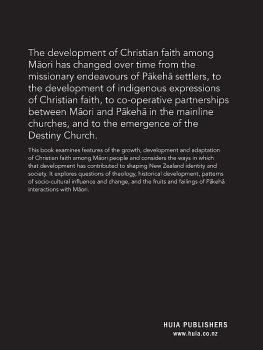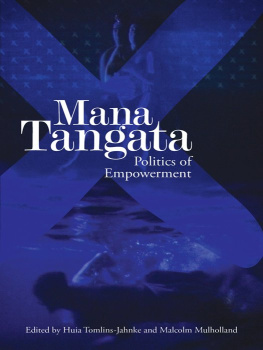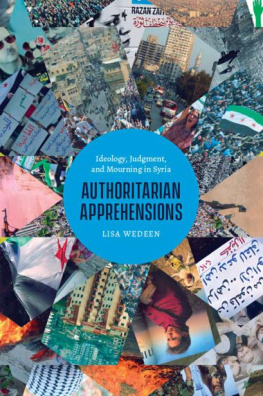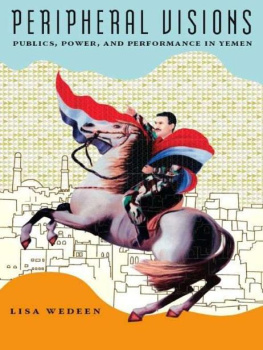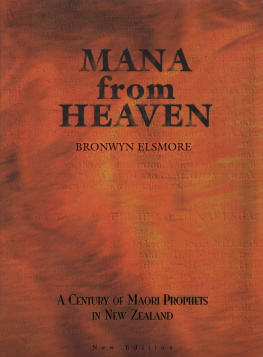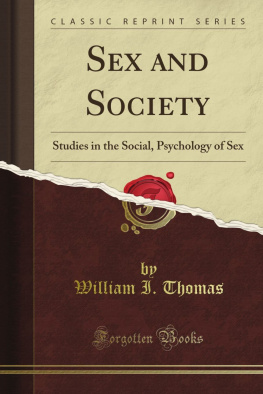William Mazzarella - The Mana of Mass Society (Chicago Studies in Practices of Meaning)
Here you can read online William Mazzarella - The Mana of Mass Society (Chicago Studies in Practices of Meaning) full text of the book (entire story) in english for free. Download pdf and epub, get meaning, cover and reviews about this ebook. year: 2017, publisher: University of Chicago Press, genre: Science. Description of the work, (preface) as well as reviews are available. Best literature library LitArk.com created for fans of good reading and offers a wide selection of genres:
Romance novel
Science fiction
Adventure
Detective
Science
History
Home and family
Prose
Art
Politics
Computer
Non-fiction
Religion
Business
Children
Humor
Choose a favorite category and find really read worthwhile books. Enjoy immersion in the world of imagination, feel the emotions of the characters or learn something new for yourself, make an fascinating discovery.

- Book:The Mana of Mass Society (Chicago Studies in Practices of Meaning)
- Author:
- Publisher:University of Chicago Press
- Genre:
- Year:2017
- Rating:4 / 5
- Favourites:Add to favourites
- Your mark:
- 80
- 1
- 2
- 3
- 4
- 5
The Mana of Mass Society (Chicago Studies in Practices of Meaning): summary, description and annotation
We offer to read an annotation, description, summary or preface (depends on what the author of the book "The Mana of Mass Society (Chicago Studies in Practices of Meaning)" wrote himself). If you haven't found the necessary information about the book — write in the comments, we will try to find it.
The Mana of Mass Society (Chicago Studies in Practices of Meaning) — read online for free the complete book (whole text) full work
Below is the text of the book, divided by pages. System saving the place of the last page read, allows you to conveniently read the book "The Mana of Mass Society (Chicago Studies in Practices of Meaning)" online for free, without having to search again every time where you left off. Put a bookmark, and you can go to the page where you finished reading at any time.
Font size:
Interval:
Bookmark:


A series edited by Andreas Glaeser, William Mazzarella, William Sewell, Kaushik Sunder Rajan, and Lisa Wedeen
Published in collaboration with the Chicago Center for Contemporary Theory http://ccct.uchicago.edu
RECENT BOOKS IN THE SERIES
The Sins of the Father: Germany, Memory, Method
by Jeffrey K. Olick
The Genealogical Science: The Search for Jewish Origins and the Politics of Epistemology
by Nadia Abu El-Haj
Questioning Secularism: Islam, Sovereignty, and the Rule of Law in Modern Egypt
by Hussein Ali Agrama
Political Epistemics: The Secret Police, the Opposition, and the End of East German Socialism
by Andreas Glaeser
The Politics of Dialogic Imagination: Power and Popular Culture in Early Modern Japan
by Katsuya Hirano
The Moral Neoliberal: Welfare and Citizenship in Italy
by Andrea Muehlebach
American Value: Migrants, Money, and Meaning in El Salvador and the United States
by David Pedersen
The Making of Romantic Love: Longing and Sexuality in Europe, South Asia, and Japan, 9001200 CE
by William M. Reddy
Laughing at Leviathan: Sovereignty and Audience in West Papua
by Danilyn Rutherford
The Mana of Mass Society
William Mazzarella
The University of Chicago Press
Chicago and London
The University of Chicago Press, Chicago 60637
The University of Chicago Press, Ltd., London
2017 by The University of Chicago
All rights reserved. No part of this book may be used or reproduced in any manner whatsoever without written permission, except in the case of brief quotations in critical articles and reviews. For more information, contact the University of Chicago Press, 1427 E. 60th St., Chicago, IL 60637.
Published 2017
Printed in the United States of America
26 25 24 23 22 21 20 19 18 17 1 2 3 4 5
ISBN-13: 978-0-226-43611-1 (cloth)
ISBN-13: 978-0-226-43625-8 (paper)
ISBN-13: 978-0-226-43639-5 (e-book)
DOI: 10.7208/chicago/9780226436395.001.0001
Library of Congress Cataloging-in-Publication Data
Names: Mazzarella, William, 1969 author.
Title: The mana of mass society / William Mazzarella.
Other titles: Chicago studies in practices of meaning.
Description: Chicago ; London : The University of Chicago Press, 2017. | Series: Chicago studies in practices of meaning | Includes bibliographical references and index.
Identifiers: LCCN 2016058492 | ISBN 9780226436111 (cloth : alk. paper) | ISBN 9780226436258 (pbk. : alk. paper) | ISBN 9780226436395 (e-book)
Subjects: LCSH: Mana. | Critical theory. | AnthropologyPhilosophy. | Mass media and anthropology.
Classification: LCC GN471.4 .M39 2017 | DDC 301.01dc23 LC record available at https://lccn.loc.gov/2016058492
 This paper meets the requirements of ANSI/NISO Z39.481992 (Permanence of Paper).
This paper meets the requirements of ANSI/NISO Z39.481992 (Permanence of Paper).
A Certain Rush of Energy
Mana beyond the Empiricist Settlement
Collective Effervescence and the Primitive Settlement
The Agony of Perfect Addressability and the Aesthetic Settlement
Eros and Nomos in the Mimetic Archive
The phrase the mana of mass society has been haunting me for a while. It first came to me in early 2004, when I dropped it, rather casually, into the conclusion of a lecturethus conveniently excusing myself of the responsibility of any rigorous elaboration. It reappeared as a section heading in my second book, Censorium , where it framed a preliminary sketch of my reinterpretation of mile Durkheims theory of ritual as a theory of mass publicitya central theme in the present book. Having now attained the declarative promise of an actual book title, I hope that these words will also agree to the exorcism that their full explication implies.
Althoughor perhaps becausethe questions that drive this book have, in one form or another, been with me since as long as I can remember, the manuscript itself emerged with startling, even explosive, speed during three intense bursts of writing in the summers of 2015 and 2016. Between the bursts, friends and colleagues were overwhelmingly generous in their critical engagements with various elements of the work. This is, unabashedly, a theory book. But it is also in its half-masked way the most intimate academic text Ive written. That so many of my interlocutors have understood this, that so many of them have sensed the resonance between theory and experiencein their own lives as much as in minehas felt like a profound reward.
For their readings, commentaries, and suggestions, I want to thank Sneha Annavarapu, Josh Babcock, Greg Beckett, Christian Borch, Nusrat Chowdhury, Jean Comaroff, John Comaroff, Shannon Dawdy, Vincent Duclos, Maura Finkelstein, Dianna Frid, Leela Gandhi, Rohit Goel, Guangtian Ha, Jenna Henderson, Laura-Zoe Humphreys, Patrick Jagoda, Harini Kumar, Andrew Kunze, Amanda Lucia, Agnes Mondragn, Sarah Muir, Nancy Munn, Sasha Newell, Tejaswini Niranjana, Ray Noll, Elonore Rimbault, Marshall Sahlins, Eric Santner, Jay Schutte, Kristen Simmons, Bhrigupati Singh, Emilio Spadola, Mick Taussig, Jeremy Walton, and Lisa Wedeen.
My coconspirators at the Chicago Center for Contemporary Theory have, over the years, given me an intellectual home. Respect and gratitude toin addition to those already mentionedLauren Berlant, Bill Brown, Dipesh Chakrabarty, Andreas Glaeser, Patchen Markell, Joe Masco, Moishe Postone, Bill Sewell, Kaushik Sunder Rajan, and Anwen Tormey. Priya Nelson, my dynamic editor at the University of Chicago Press, somehow knew right away how to calm my anxieties and to help me believe in the broader plausibility of a project that, on some days, felt painfully idiosyncratic. As for the mana of everyday and thus extraordinary life, I have, crab-like as ever, approached it sideways, under cover of my disciplines. For Dianna Frid, no such subterfuge was necessary. Her presence and practice continues in so many ways to inspire my thinking about the Sirens call, about wormholes, and about conceptual form as always-already immanent life.
A certain rush of energy . This is what the sociologist mile Durkheim wrote in his 1912 masterpiece, The Elementary Forms of Religious Life : The stimulating action of society is not felt in exceptional circumstances alone. There is virtually no instant of our lives in which a certain rush of energy fails to come to us from outside ourselves.
This book picks up on Durkheims provocation and asks what it would mean, for social theory, to imagine the mana that powers an Aboriginal ritual as substantially continuous with the mana that infuses an urban crowd or even, differently modulated, a television audience or an Internet public. It asks how one might theorize the mana of mass society in a world where a certain rush of energy is as likely to be found in consumer brand advertising as in totemic signs, as likely to power a fascination with charismatic politicians as an affiliation with traditional authorities. Is mana different when it comes to us with the curious blend of intimacy and impersonality so characteristic of public address?
Durkheim tended to presume that the stimulating action of society was unambiguously vitalizing, that it was the source not only of our sense of commitment to life in common but also of our moral faculties, even our very ability to think at all. But what about the mana of, say, racist or nationalist ideologies that offer their adherents a sense of common energy and solidarity at the cost of abjecting an other? Knowing what we now know about murderous forms of collective effervescence, from the centralized cults of fascism to the decentralized networks of global terror, do we need a different way to understanding the dynamic movement of what Durkheims nephew, the polymath Marcel Mauss, called the collective forces of society?
Font size:
Interval:
Bookmark:
Similar books «The Mana of Mass Society (Chicago Studies in Practices of Meaning)»
Look at similar books to The Mana of Mass Society (Chicago Studies in Practices of Meaning). We have selected literature similar in name and meaning in the hope of providing readers with more options to find new, interesting, not yet read works.
Discussion, reviews of the book The Mana of Mass Society (Chicago Studies in Practices of Meaning) and just readers' own opinions. Leave your comments, write what you think about the work, its meaning or the main characters. Specify what exactly you liked and what you didn't like, and why you think so.

